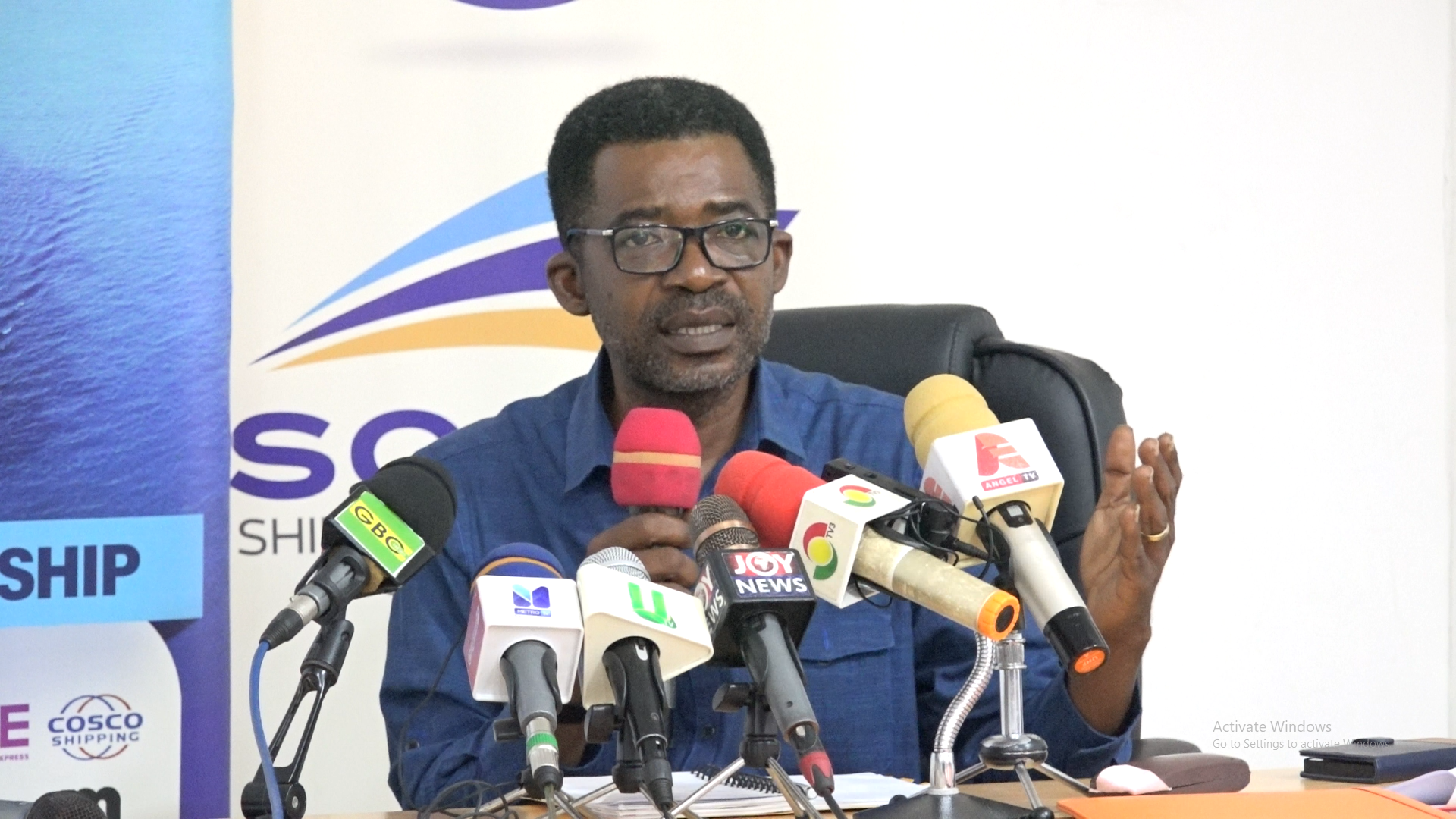The Shipowners and Agents Association of Ghana (SOAAG) has denied allegations that shipping lines operating in the country are exploiting Ghanaians.
Speaking at a media engagement on Wednesday, October 9, 2024 in Tema, Mr. Adam Imoru-Ayarna, an executive member of SOAAG, stated that shipping is a business of conscience and that shipping lines have no motivation to short-change shippers.
The media engagement comes on the back of a recent protest by sections of stakeholders in the Shipping Industry, Particularly, Freight Forwarders, Importers and Exporters as well as the trading public, against what they describe as illegal and arbitrary charges by Shipping Lines and their agents operating in the country. They tag charges such as Container administrative fees and Container cleaning fees as illegal. They also argue that the inability of the Shipping Lines to work during weekends and on public holidays is ground enough for them to remove any charge during these periods. According to them, the Shipping lines must go to the negotiation table with the Ghana Shippers’ Authority to negotiate their rates. They accused the shipping lines of perpetrating an illegality by refusing to negotiate with the Shippers Authority who have been clothed by law, with the authority and mandate to negotiate with all shipping service providers, their rates.
But according to Mr. Imoru-Ayarna, the shipping lines are not charging illegal fees and that every charge is a service rendered.
“Who would offer a service and not charge an administrative charge? And I’m sure if you want to go and purchase ECG units, there is some kind of underlying administrative charge. Shipment is not that very different from the airline business, if you are booking through travel agencies, I’m sure you pay administrative charges. It’s not just the airline charges that you pay, but there’s some administrative charges,” he defended.
Imoru-Ayarna emphasized that shipping lines prioritize their consumers and would not deliberately surcharge them.
“The shipping agencies (in Ghana) have to look after themselves. They have to look after their offices. They have to look after their staff. They have vehicles. They have other administrative costs. Even these empty container movements, they don’t charge full recovery,” he said.
He explained that shipping lines have stopped charging cleaning fees, except for one, and steps are being taken to address this.
He also highlighted the importance of transparency in shipping costs, advocating for the introduction of terminal handling charges to determine cost drivers to itemize costs and ensure transparency.
Imoru-Ayarna asserted that shipping creates opportunities for global commerce, and that shipping lines comply with the laws of every country.
“I think it’s high time if we want international best practices, Ghana should be looking at maybe introducing terminal handling charges going forward and we have to do it with everybody in mind but why do we want to do that, we want to itemize some of the cost that everybody will see the cost drivers,” he said.
He said shipping lines contribute significantly to Ghana’s economy. Citing figures for 2022, he revealed that nine shipping lines paid $9.3 million to the Ghana Maritime Authority and the Ghana Shippers Authority and $12.9 million in corporate income tax.
“So sometimes we have to be very careful in business, and it’s in every business. We have to be very careful not to make statements, especially when we do not understand the statement, because it would jeopardise your economy,” he warned.
He encouraged understanding and dialogue to address industry challenges when they crop up so as to improve the business environment in Ghana.
Source: Eye on Port, with additional files from BestNewsGH.com

